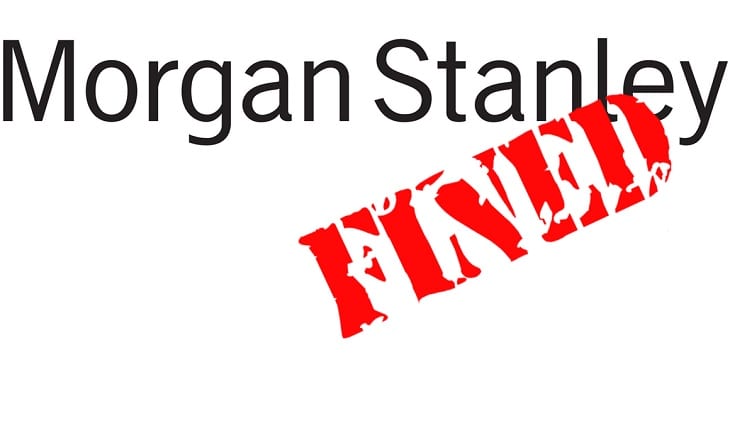The U.S. Financial Industry Regulatory Authority (FINRA) has announced that it has fined the Morgan Stanley Smith Barney LLC unit of global investment bank Morgan Stanley (NYSE:MS) $3.25 million and required the firm to pay approximately $9.78 million in restitution to more than 3,000 affected customers for failing to supervise its representatives’ short-term trades of unit investment trusts (UITs).
A UIT is an investment company that offers units in a portfolio of securities that terminates on a specific maturity date, often after 15 or 24 months. UITs impose a variety of charges, including a deferred sales charge and a creation and development fee, that can total approximately 3.95 percent for a typical 24-month UIT. A registered representative who repeatedly recommends that a customer sell his or her UIT position before the maturity date and then “rolls over” those funds into a new UIT causes the customer to incur increased sale charges over time, raising suitability concerns.
FINRA found that from January 2012 through June 2015, hundreds of Morgan Stanley representatives executed short-term UIT rollovers, including UITs rolled over more than 100 days before maturity, in thousands of customer accounts. FINRA further found that Morgan Stanley failed to adequately supervise representatives’ sales of UITs by providing insufficient guidance to supervisors regarding how they should review UIT transactions to detect unsuitable short-term trading, failing to implement an adequate system to detect short-term UIT rollovers, and failing to provide for supervisory review of rollovers prior to execution within the firm’s order entry system. Morgan Stanley also failed to conduct training for registered representatives specific to UITs.
Susan Schroeder, FINRA Executive Vice President and Head of Enforcement, said,
Due to the long-term nature of UITs, their structure, and upfront costs, short-term trading of UITs may be improper and raises suitability concerns. Firms must adequately supervise representatives’ sales of UITs –including providing sufficient training –and have in place a system to detect potentially unsuitable short-term UIT rollovers.
In assessing sanctions, FINRA has recognized Morgan Stanley’s cooperation in having initiated a firmwide investigation that included, among other things, interviewing more than 65 firm personnel and the retention of an outside consultant to conduct a statistical analysis of UIT rollovers at the firm; identified customers affected and establishing a plan to provide remediation to those customers; and provided substantial assistance to FINRA in its investigation.
As a result of this case, FINRA launched a targeted exam in September 2016 focused on UIT rollovers. In addition, in its 2017 Exam Priorities Letter, FINRA highlighted that it was evaluating firms’ ability to monitor for short-term trading of long-term products.
In settling this matter, Morgan Stanley nether admitted or denied the charges, but consented to the entry of FINRA’s findings.
